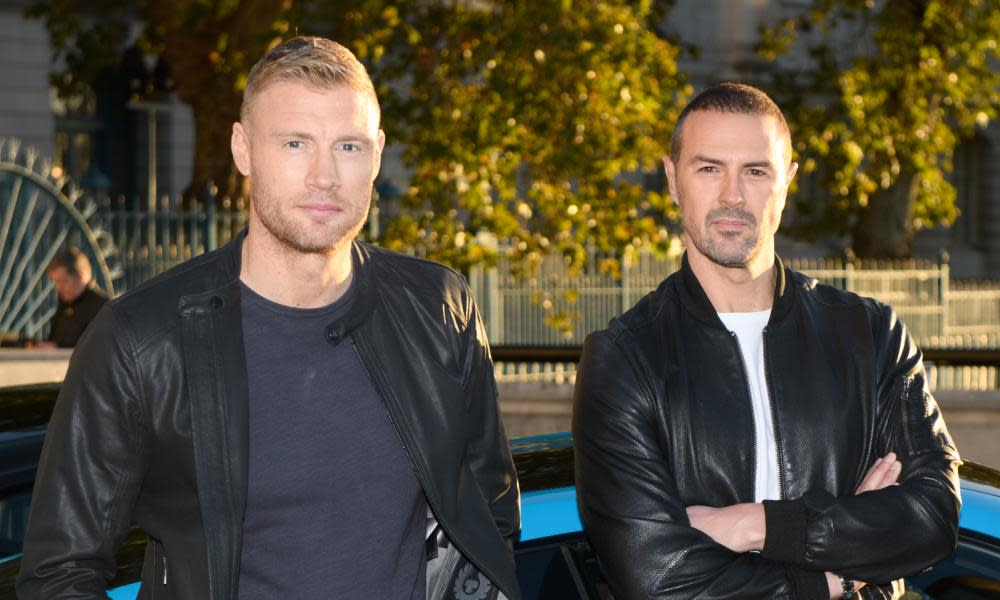BBC drafts in new Top Gear hosts to keep money-spinning show on the road

Andrew “Freddie” Flintoff and Paddy McGuinness are not currently household names in Iran. But if the pair ever go there they should prepare to be mobbed after being announced as the new hosts of Top Gear. The Middle Eastern country is one of more than 200 territories around the world where the show is broadcast, attracting a loyal fanbase attracted by a mix of banter and fast cars.
The former England cricketer and the host of ITV dating show Take Me Out are being tasked with keeping one of the BBC’s most important cash cows on the road, sustaining a global web of TV rights deals and merchandise agreements that bring in tens of millions of pounds a year.
BBC Studios, the corporation’s commercial production and licensing arm, claims the programme attracts a global audience of 350 million, with rights sold in countries ranging from Poland to India and regions from South America to the Middle East. That’s despite the most recent season averaging around 3 million viewers in the UK – half the number who tuned in for the final Jeremy Clarkson-fronted series.
“Hardly any shows do over 3 million for BBC2,” said Chris Curtis, editor of the industry magazine Broadcast. “It may be in decline but at the moment it’s still a no-brainer to recommission it, and the upside is that it sells around the world. Will BBC Studios be making as much money as it used to? Probably not, but Top Gear is still doing a decent job.”
The global success means there is no holding back when it comes to monetisation. There’s Top Gear magazine, the world’s biggest monthly motoring publication, with licensed editions everywhere from France to the Philippines. Top Gear mobile phone games have been downloaded more than 30m times. Parents can buy The Stig Plays a Dangerous Game, a children’s book based on the show’s anonymous racing driver. Then there’s the board games, school lunchboxes, calendars. If it’s possible to stick a Top Gear logo on it, the chances are there will be a product you can buy.
The change in the presenting lineup follows a damaging few years for the show, beginning in March 2015 when Clarkson was suspended for punching a producer at a hotel in the Yorkshire Dales.
After a lengthy disciplinary process, Clarkson decided to walk away from the corporation along with co-hosts Richard Hammond and James May, forming their own production company and convincing Amazon to pay them around £160m for a three-series run of The Grand Tour, which is due to conclude next year.
Top Gear was left to struggle on with an entirely new lineup, with the Radio 2 breakfast show host Chris Evans forming an awkward partnership with the former Friends star Matt Le Blanc only to leave after one series, allowing the actor take solo control.
Although the BBC does not reveal the amount of money each show earns, it helps that Top Gear is produced in-house by BBC Studios rather than an independent production company. This compares favourably with other recent BBC hits such as the political drama Bodyguard, which despite being shown on BBC One was made by an ITV-owned business that sold the rights for the rest of the world to Netflix, meaning the corporation is unlikely to see a major financial return on its enormous success.
The BBC also owns all the intellectual property associated with Top Gear after buying out Clarkson and the show’s then producer Andy Wilman in 2012. This enables the corporation to extract maximum value, making it one of its most commercially valuable shows along with the likes of Doctor Who and Planet Earth. The BBC will hope that the two new Lancastrian hosts can continue to keep global audiences watching.

 Yahoo News
Yahoo News 
